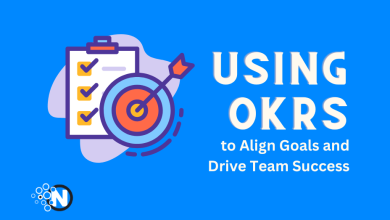Can Astrology Help In Business Decisions: Myth Or Undeservedly Forgotten Tool?

Modern business increasingly turns to non-standard sources of analysis and forecasting, from ChatGPT to mindfulness practices. But one of the most ancient areas – astrology – still causes controversy.
Can it be something more than just a funny horoscope for the last page of the calendar? And should a businessman at least once look at his natal chart before concluding a deal?
In this blog post, I will shed light on how Astrology can be helpful in business decision-making.
Let’s start!
The Historical Context of Astrology in Decision-Making
From personal problems to national affairs, astrology has been applied for centuries to direct decisions. Astrological charts helped Ancient civilizations such as the Greeks, Babylonians, and Egyptians forecast results and schedule important events. Before waging battles or signing treaties, kings and emperors sometimes sought advice from astrologers.
Astrology was long used in the business world to find lucky moments for partnerships, investments, and commerce. The theory was that celestial alignments might affect human behaviour and, thus, the success or failure of businesses. While modern science has largely overshadowed astrology, its historical significance cannot be ignored.

Why Astrology Is Making A Comeback In Business
In recent years, amid volatile markets, inflation, and digital overload, people have begun to look for more intuitive, unconventional ways to make decisions. And while astrologers used to be consulted for love predictions, their clients now include startups, HR directors, and business owners.
This is not surprising. Astrology is essentially a system for interpreting cycles. It shows how we are affected not only by the current moment but also by deep processes that unfold over the years. This is what makes it especially valuable in a world where most decisions are made “here and now,” and the consequences last for decades.
How Astrology Can Be Useful In Business
Firstly, it helps to understand your own management style and strengths. For example, a person with the Sun in Capricorn will do an excellent job of systematic work, set goals and stay on track. An entrepreneur with a strong Uranus in the natal chart can be an innovator, but at the same time, prone to abrupt changes that can frighten investors.
Secondly, astrology helps to choose a good time to launch projects, conclude deals and even change offices. This is actively used by companies in Asia, especially in India and China, where knowledge of the lunar calendar is integrated into business culture. In Europe, this direction is called “business astrology” and is even included in corporate consulting.
Thirdly, more and more attention is paid to compatibility between partners. Not in a love sense, but in a professional one. An astrologer can determine whether one person will inspire another or, conversely, suppress. This is especially relevant for small businesses, where relationships within a team often become the key to success or failure.
Thus, here is a short list of situations where the astrological approach can be especially useful:
- launching a startup or a new brand;
- signing a partnership agreement;
- rebranding a company;
- scaling a business abroad;
- hiring key employees;
- investing in long-term projects.
Why Some Consider It Stupid, While Others Consider It A Hidden Weapon
Astrology has many opponents, and their arguments are clear: there is no scientific basis, the predictions are vague, the interpretations depend on the interpreter. Indeed, there are no ROI or unit economics formulas. But this does not make the method useless.
Supporters perceive astrology as a tool for making informed decisions in conditions of uncertainty. It does not promise precise forecasts, but it can outline a vector, showing the “climate” in which the situation will unfold. This is especially important during transitions – changing a team, entering a new market, scaling.
It is important to emphasize: astrology is not a religion or fortune telling. It is a language of symbols, rhythms and meanings that can be used as a supplement to traditional analysis. Oddly enough, in the world of high speeds and decisions “for yesterday”, this approach can become an advantage.
New Tools And Approach
Previously, in order to “look into the stars”, you had to find an astrologer, wait weeks, and translate incomprehensible terms. Today, everything is simpler. Applications like Hint https://hint.app/ allow you to get a personal astrological forecast on a business topic right on your phone. This is not just a “lucky day for Sagittarius”, but a deep analysis of a specific situation, taking into account goals, the scope of activity and time cycles.
This approach is becoming especially relevant for Generation Z and Millennials, who value intuition, an individual approach, and unconventional solutions.
The final word: Is It Worth Trying?
If you are a pragmatist who still doubts, just ask yourself: is it worth rejecting a tool that can possibly help if its use does not require large investments and does not interfere with conventional business practices?
Astrology does not provide guarantees, but it can open up unexpected insights. It does not replace strategy, but it helps to understand why now, why with these people, and where everything is heading on a deeper level.




